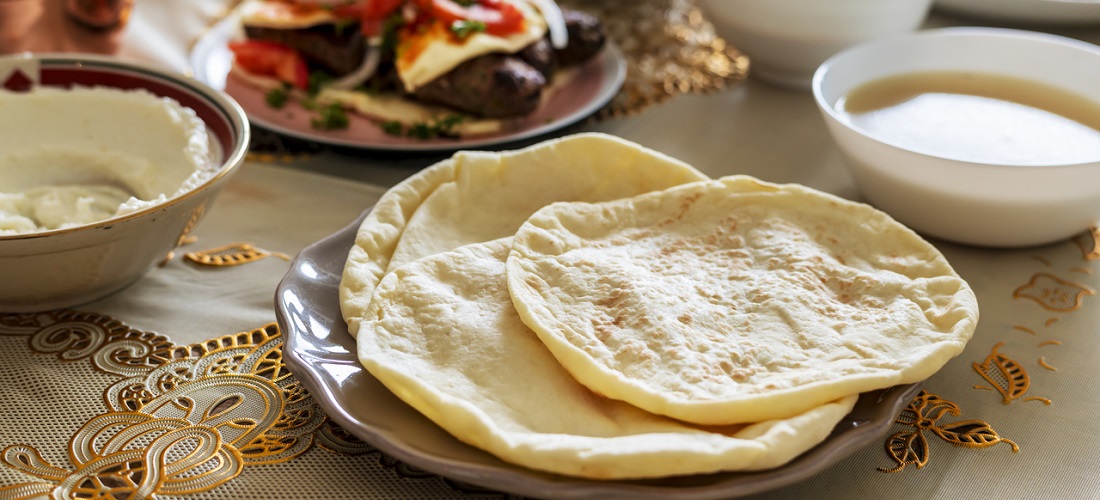
Brazilian businesses look to expand halal food exports to Arab countries
Mar, 16, 2023 Posted by Gabriel MalheirosWeek 202313
Brazil, the world’s leading exporter of halal meat and poultry, is now seeking to expand the selection of food products it could potentially export to the world’s 57 Muslim-majority nations, as well as Islamic communities in other countries.
The Halal Brazil project — launched by the Arab Brazilian Chamber of Commerce and the Brazilian Trade and Investment Promotion Agency, known as ApexBrasil — aims to incentivize food and beverage companies in the country to get halal certifications and export to the Muslim world.
The project will reach at least 500 small and medium-sized enterprises, and inform them of the benefits of seeking a halal certification and entering Muslim markets worldwide.
Nuts, dairy products and fruit are among the items that could be exported by Brazilian companies.
Over a period of two and a half years, the project’s participants will learn about Muslim markets and halal certification. The companies that decide to seek a certification will be helped by the project organizers, with up to half the costs being paid by the program.
“We’ll also help some companies take part in promotional activities, including international fairs and exhibitions,” Deborah Rossoni, a foreign trade analyst at ApexBrasil, told Arab News.
Ignorance about the potential of Muslim markets and the halal certification process still prevails among most SMEs in Brazil, said Rossoni.
“Many people think it’s complicated to fulfill the requirements and obtain a halal certification. At times, a company will have to invest in new equipment in order to comply with halal demands, but it may be the case of only dividing production lines, for instance,” she added.
Brazil’s exports to the Arab world reached $17.74 billion in 2022, according to recent reports released by the Arab Brazilian Chamber of Commerce.
Products such as cane or beet sugar and chemically pure sucrose in solid form were the top products exported to the Arab world, totaling $3.4 billion in 2022. Meat and poultry, both fresh and frozen, followed closely behind, amounting to $3.164 billion.
This was followed by iron ores and concentrates including roasted iron pyrites worth $2.9 billion, maize or corn worth $2 billion, soybeans worth $1.1 billion, and frozen meat of bovine animals worth $805.6 million.
Ahmad Saifi, director of Cdial Halal — a major certifier in Latin America — told Arab News: “More and more Brazilian fish-farming companies have been looking for a certification. The Muslim consumer certainly prefers certified products.”
Certifiers such as Cdial Halal are also taking part in Halal Brazil. Their role is to provide useful information to SMEs and help them navigate the decision-making process.
“Brazil is a gigantic halal exporter, but large companies dominate most sales. We must not only improve our commercial presence in the Muslim world, but also introduce more sophisticated products,” Saifi said, adding that this has already begun. Acai berries, for instance, are now readily available in the Arab world.
Versions of processed acai are increasingly being exported to the region — not only the raw material, but items with added value, he said, adding: “That’s the kind of movement we must seek now.”
Rossoni agrees, saying exports of commodities have been tremendously important for Brazil’s economy, but the country can now prioritize “products with added value, including processed meat items and beverages.”
She added: “Offering the final products under our own brands can certainly generate great results.”
Source: Arab News
To read the original news report, see: https://www.arabnews.com/node/2269401/business-economy
-
Meat
Sep, 09, 2021
0
China’s meat imports down nearly 9% YoY in August
-
Other Cargo
Jul, 25, 2022
0
China allows imports of peanuts from Brazil that meet quarantine requirements
-
Grains
Dec, 23, 2022
0
Argentine government extends corn exports for six months
-
Meat
Dec, 09, 2020
0
Chicken and pork production and exportation increases in 2020


